- What difference does gender and sex make to who carries the greatest burden of AMR in a community?
- How does gender intersect with other social and cultural factors to intensify vulnerability to AMR?
- What are the implications of these insights for health researchers, donors and policymakers?
Join us for a lively conversation about this aspect of gender inequality, in an online chat show hosted by Itad, the evaluation and learning partner for the Fleming Fund, a UK aid programme supporting countries across Africa and Asia to tackle AMR.
This event has been prompted by the publication of a paper commissioned by the Fleming Fund, ‘Using intersectionality to study gender and antimicrobial resistance in low- and middle-income countries’, and is an opportunity to discuss the practical implications of the study with the authors and members of the informal WHO expert working group on gender & AMR.
Speakers
The chat show will be hosted by Cheryl Brown, the Learning Advisor to the Fleming Fund Evaluation Team and her guests will include:
- Giada Tu Tanh and Juliette Gautron, two of the study’s authors who are also working with Itad on the Fleming Fund evaluation;
- Erica Westwood, leader of the project Strengthening gender equality and social inclusion in LMICs across the AMR research continuum at the International Centre for Antimicrobial Resistance Solutions (ICARS);
- Sarah Paulin-Deschenaux, Technical Officer on AMR at the Department of AMR Surveillance, Prevention and Control at WHO;
- Mirfin Mpundu, Director of ReAct Africa and a member of ReAct’s Global leadership team
We are also delighted to be joined by Professor Dame Sally Davies, the first UK Special Envoy on Antimicrobial Resistance, the previous Chief Medical Officer for England and the driving force behind the establishing of the Fleming Fund.
Details and registration
Use this link to register for the chat show, which will be held on Zoom.
The event will be recorded and a link to the recording sent to everyone who registers, so if you are unable to join us on the day, please register to be added to our mailing list.
If you have any questions for the guests or about the chat show, there is space on the registration form to send them in. please use the registration form to send them in or email gender.in.amr@itad.com
About the speakers
Dame Sally Davies
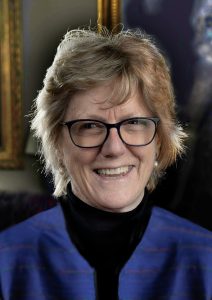 Dame Sally Davies was appointed as the UK Government’s Special Envoy on AMR in 2019. She is also the 40th Master of Trinity College, at the University of Cambridge.
Dame Sally Davies was appointed as the UK Government’s Special Envoy on AMR in 2019. She is also the 40th Master of Trinity College, at the University of Cambridge.
Dame Sally was the Chief Medical Officer for England and Senior Medical Advisor to the UK Government from 2011-2019. She is a leading figure in global health, having served as a member of the World Health Organisation (WHO) Executive Board 2014-2016, and as co-convener of the United Nations Inter-Agency Co-ordination Group (IACG) on Antimicrobial Resistance (AMR), reporting in 2019. In November 2020, Dame Sally was announced as a member of the new UN Global Leaders Group on AMR, serving alongside Heads of State, Ministers and prominent figures from around the world to advocate for action on AMR.
In the 2020 New Year Honours, Dame Sally became the second woman (and the first outside the Royal family) to be appointed Dame Grand Cross of the Order of the Bath (GCB) for services to public health and research, having received her DBE in 2009
Mirfin Mpundu
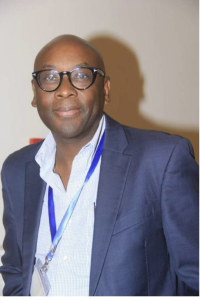 Mirfin Mpundu is the Director of ReAct Africa and a member of the ReActs Global leadership team. He provides countries with technical assistance on National Action Plans development and implementation, including regional bodies, and works closely with the Tripartite organizations. He sits on several boards including the Wellcome-funded Surveillance and Epidemiology of Drug-Resistant Infections Consortium (SEDRIC) and the External Advisory Board of the Newton AMR Drug Discovery Programme. In 2020, he co-authored the report titled Scoping the Significance of Gender for Antibiotic Resistance and is a member of the WHO informal expert working group on gender & AMR.
Mirfin Mpundu is the Director of ReAct Africa and a member of the ReActs Global leadership team. He provides countries with technical assistance on National Action Plans development and implementation, including regional bodies, and works closely with the Tripartite organizations. He sits on several boards including the Wellcome-funded Surveillance and Epidemiology of Drug-Resistant Infections Consortium (SEDRIC) and the External Advisory Board of the Newton AMR Drug Discovery Programme. In 2020, he co-authored the report titled Scoping the Significance of Gender for Antibiotic Resistance and is a member of the WHO informal expert working group on gender & AMR.
Erica Westwood
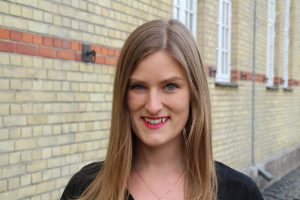 Erica Westwood is a public health researcher and programme manager, with diverse experiences working in infectious disease programs with low- and middle-income country settings. She also has extensive experience working on social determinants of health with vulnerable and indigenous populations. She’s current employed as a Senior Science Advisor at the International Centre for Antimicrobial Resistance Solutions (ICARS), where she has led the development of a gender, equity and AMR program. Erica is currently leading a project on Strengthening gender equality and social inclusion in LMICs across the AMR research continuum, which developed practical guidance on integrating a gender and equity lens in AMR research. She is also a member of the informal expert group convened by WHO on gender and AMR. Erica holds a Bachelor’s of Health Sciences from the University of Calgary, a Master of Science in Global Health from McMaster University in Canada, and an executive MBA from Quantic School of Business and Technology.
Erica Westwood is a public health researcher and programme manager, with diverse experiences working in infectious disease programs with low- and middle-income country settings. She also has extensive experience working on social determinants of health with vulnerable and indigenous populations. She’s current employed as a Senior Science Advisor at the International Centre for Antimicrobial Resistance Solutions (ICARS), where she has led the development of a gender, equity and AMR program. Erica is currently leading a project on Strengthening gender equality and social inclusion in LMICs across the AMR research continuum, which developed practical guidance on integrating a gender and equity lens in AMR research. She is also a member of the informal expert group convened by WHO on gender and AMR. Erica holds a Bachelor’s of Health Sciences from the University of Calgary, a Master of Science in Global Health from McMaster University in Canada, and an executive MBA from Quantic School of Business and Technology.
Sarah Paulin Deschenaux
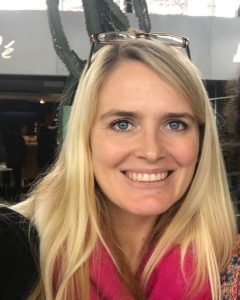 Sarah Paulin Deschenaux is a Technical Officer on AMR at the Department of AMR Surveillance, Prevention and Control at WHO headquarters where she leads the development of norms and standards as well as technical to assistance to countries for the sustainable implementation of national action plans on AMR. She co-leads the development of the recently launched WHO people-centred approach to addressing AMR and is currently overseeing the development of three WHO policy briefs: one on Gender & AMR, one on Equity & AMR and one on Disability inclusion & AMR. Sarah holds a PhD in microbiology from UCL and a MSc from LSHTM.
Sarah Paulin Deschenaux is a Technical Officer on AMR at the Department of AMR Surveillance, Prevention and Control at WHO headquarters where she leads the development of norms and standards as well as technical to assistance to countries for the sustainable implementation of national action plans on AMR. She co-leads the development of the recently launched WHO people-centred approach to addressing AMR and is currently overseeing the development of three WHO policy briefs: one on Gender & AMR, one on Equity & AMR and one on Disability inclusion & AMR. Sarah holds a PhD in microbiology from UCL and a MSc from LSHTM.
Giada Tu Thanh
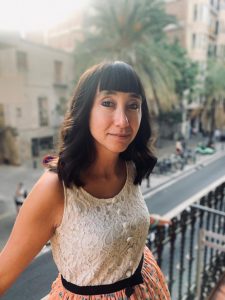 Giada is the Deputy Team Leader of the Fleming Fund evaluation and she also leads on assessing the programme’s Gender & Equity approach. She has been involved with the evaluation and the programme since 2016 and she’s always been a fervent supporter of integrating a G&E lens in this and other Global Health programmes. She led the conceptualisation of the paper, closely working with the Fleming Fund team who commissioned this work and also contributed to drafting. She’s also a member of a WHO informal expert working group on gender & AMR. Giada will cover the policy implications of the paper and its key messages.
Giada is the Deputy Team Leader of the Fleming Fund evaluation and she also leads on assessing the programme’s Gender & Equity approach. She has been involved with the evaluation and the programme since 2016 and she’s always been a fervent supporter of integrating a G&E lens in this and other Global Health programmes. She led the conceptualisation of the paper, closely working with the Fleming Fund team who commissioned this work and also contributed to drafting. She’s also a member of a WHO informal expert working group on gender & AMR. Giada will cover the policy implications of the paper and its key messages.
Juliette Gautron
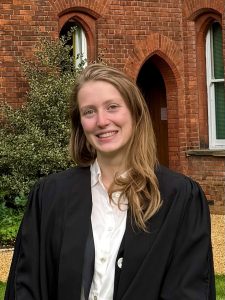 Juliette Gautron is a Consultant on the Fleming Fund evaluation. She led the research and writing of the paper on intersectionality, gender and AMR. She will be able to answer specific questions on the results of the research. Juliette holds an MPhil in Development Studies and is a PhD candidate in Social Anthropology at the University of Cambridge.
Juliette Gautron is a Consultant on the Fleming Fund evaluation. She led the research and writing of the paper on intersectionality, gender and AMR. She will be able to answer specific questions on the results of the research. Juliette holds an MPhil in Development Studies and is a PhD candidate in Social Anthropology at the University of Cambridge.
 Cheryl Brown
Cheryl Brown
Cheryl is the Learning Advisor of the Fleming Fund evaluation and has extensive experience in facilitating online learning and reflection, for example in the context of the Women’s Integrated Sexual Health (WISH) programme – a flagship UK FCDO´s programme to scale up support to integrated sexual and reproductive health and rights.

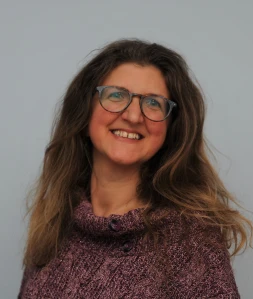 Cheryl Brown
Cheryl Brown